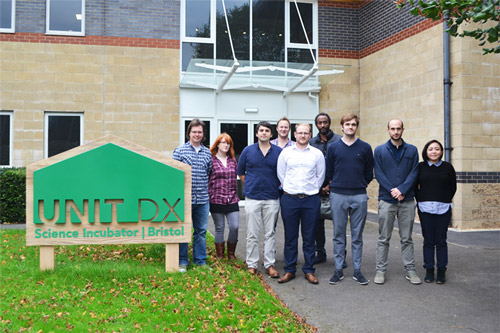QTEC is a one-year, cohort-based pathway offering training in business, entrepreneurship and systems engineering and design. The programme, which was previously based at the University of Bristol, was developed in collaboration with Cranfield University, and assists graduates from a range of backgrounds across the physical sciences with the skills to create, develop and market their quantum-enabled technologies.
Jane Garrett, Enterprise Lead at QTEC, said: "Having hosted a number of events at Unit DX during our inaugural year, we are delighted to be in a position to locate our new cohort at the facility full time. Working alongside scientific start-ups and enterprises provides an excellent environment for teaching entrepreneurial skills to the QTEC Fellows."
Quantum technology encompasses a wide range of applications, including revolutionising the computing industry by providing massive increases in processing power. One start-up that emerged from last year’s QTEC cohort, KETS Quantum Security, is developing quantum encryption techniques based on quantum key distribution (QKD) and quantum random number generation (QRNG). These techniques will provide quantum-secured communications to address the increased venerability of traditional encryption systems, caused by rapidly rising classical computing power and the advent of quantum computing.
Fellows from last year’s QTEC cohort have already made use of the facilities at Unit DX, having hosted many of their workshops and meetings at the location. One recent graduate of the programme, Xiao Ai, founder of QLM Technology, has also taken up laboratory and office space at Unit DX. Xiao’s technology has the potential to help reduce methane leaks from oil and gas pipelines, a leading source of greenhouse gas emissions. The facilities at Unit DX allow Xiao to work on his prototype and meet with investors and potential clients, all in the same location.
The QTEC programme is funded by the EPSRC and connects its fellows to the UK National Quantum Technology (UKNQT) programme, which aims to “make the UK a ‘go-to’ place for the development and commercialisation of quantum technologies”.
